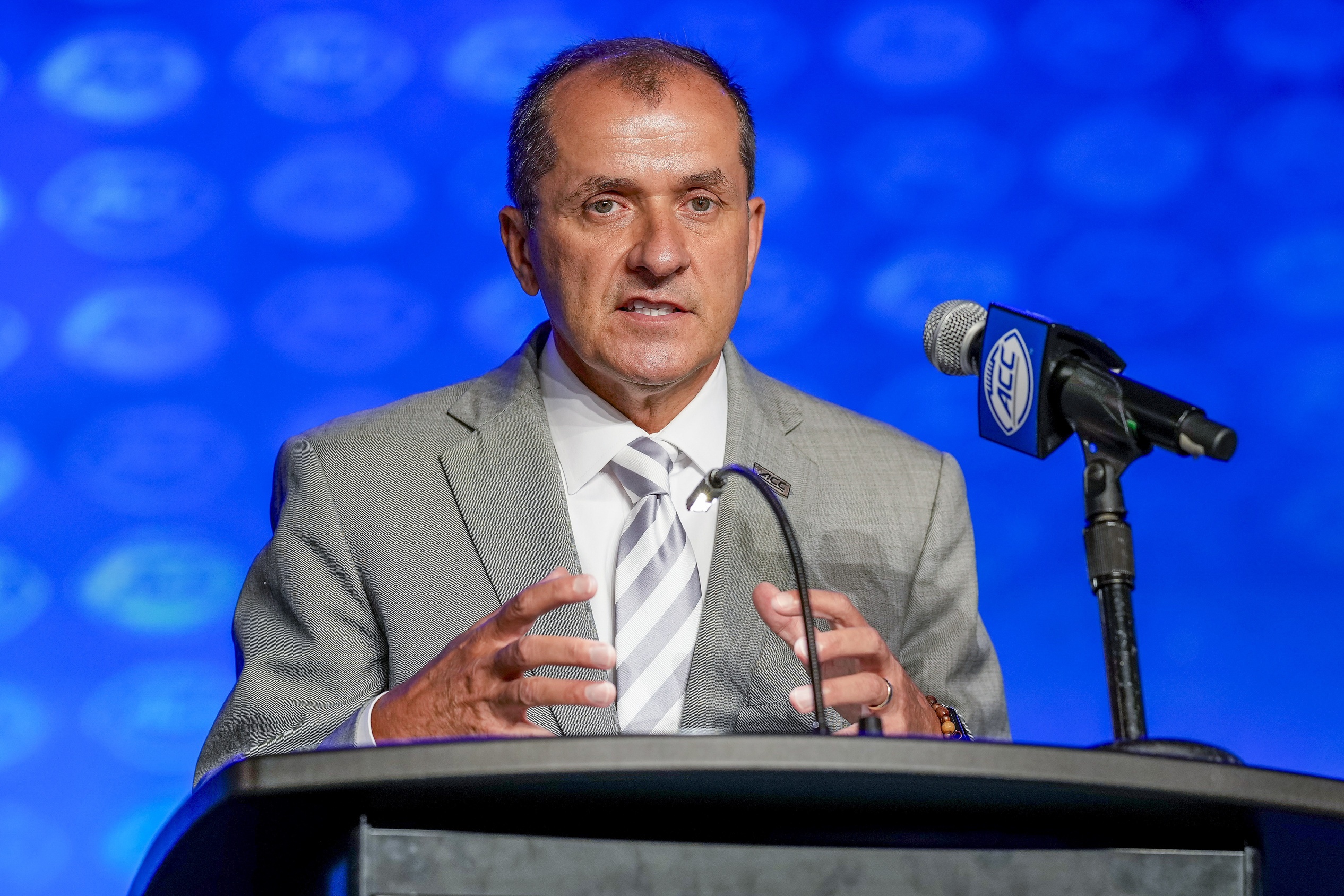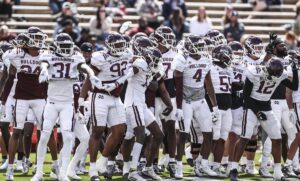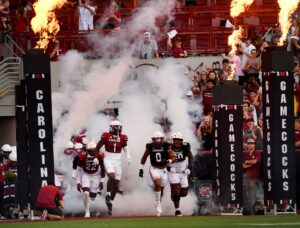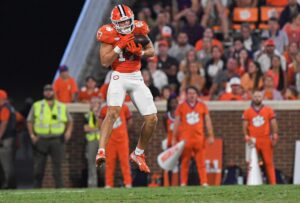ACC commissioner Jim Phillips says he is aware of the narrative on the conference. It has been an unavoidable part of the news cycle during the off-season. Not much of it has been good. More of it has been unanswered questions. And the brunt of it has been about the ACC’s financial morass.
Phillips hosted the press conference to open ACC football media days in Charlotte, NC. The conference is assembling all 14 teams over three days, with coaches and three players per team. But the Q&A with Phillips was one of the most anticipated parts of the week, because of that news-making off-season.
Family Disharmony Repaired?
The ACC, because of its seemingly never-ending Grant of Rights media deal, is falling far behind the Big 10 and the SEC when it comes to TV revenue for its member schools. That gap widens as the Big 10 enters a new TV contract that will get its schools upwards of $70 million per year. That is double what the ACC schools will get.
Florida State and Clemson athletic directors were very vocal about their displeasure. It came to a head when all the conference schools met in the Spring in Amelia Island, Florida. The result was a plan to end even distribution of post-season revenue. Play in a bowl game and you will get the disproportionate share of the revenue from that game. Balanced revenue sharing will come to an end. It quieted the dismay, for now. But it shifts a few million dollars here and there. It does not get any of the schools close to SEC and Big 10 revenue.
“Instead of trying to get to a number, try to bridge it as far as you can,” Philips said Tuesday. He added, “All of our schools are incentivized to make sure that we have as healthy of a financial portfolio as we possibly can.” Translation…the more schools who make the postseason, the more financial harmony he expects throughout the conference with the newly dubbed, Success Incentive Initiative.
Phillips said the meetings in Amelia Island were uncomfortable. Two of the premier football programs in the conference going public with their financial dissatisfaction will do that to a vibe. He said that because of the blunt conversations, there are now weekly meetings with the conference’s board of directors/school administrators.
Agreement Over NIL
For whatever band-aid needed to be applied to those issues, it pales in comparison to what Phillips considers a gaping wound….state legislatures making up their own NIL laws for college athletes. Phillips joined his fellow Power 5 commissioners in decrying the current NIL environment. In recent weeks, it was the Big 12’s Brett Yormark, the SEC’s Greg Sankey, and the Pac-12’s George Kliavkoff at their respective conference’s annual media events. Tony Petitti of the Big 10 is on deck for later this week.
The specific issue was addressed on Tuesday by Phillips but discussed universally across the conferences in recent weeks. It is not athletes making money through NIL, but the wave of state laws allowing their schools to ignore NCAA rules on the issue. Thirteen of the conference’s 14 schools are in states where NIL laws are in existence, (Massachusetts does not have one for Boston College).
“I think here is where Name, Image, and Likeness is off the track,” Phillips said. “Where it’s really difficult is these disproportionate state-by-state rules and legislation.” Currently, 38 states have passed legislation that mandates that their schools abide by their laws even if in opposition to the NCAA. “If you look at the NCAA and the history of it, we’ve kind of all raised our right hand and indicated, ‘Hey, we’ll follow these rules, even if we don’t like off of them, we’ll follow them.’ But the current NIL legislation is so disproportionate about what you can do in one state versus another state.”
Looking To The Federal Government
Phillips said he has spent as much in Washington D.C. as anywhere else recently. NCAA president Charlie Baker has been actively courting federal lawmakers to take over the issue from the states. Phillips echoed the desire of his fellow commissioners in the desire to have federal guidance over the issue. “I say this, that when you have inter and intrastate competition, you want fairness and everybody playing with the same type of rules. That’s why Washington D.C. and Congress have been very important.”
Phillips said an important issue for him within the bigger umbrella is a program for the certification of NIL agents. One does not currently exist. And few of the newly passed state bills mandate that agents representing athletes be certified by a governing body as they are in pro sports.
To this date, there has been no school investigated by its own state government for a violation of the legislature’s rules. Phillips said he does not expect anything from the NCAA in that capacity either. “At the end of the day, I think we have paralyzed the enforcement staff, not intentionally, but with state NIL laws.” A deep read of any of the state laws will bear out that their entire intention is in fact to paralyze the NCAA from investigating their universities.
Phillips said progress has been made on the federal side, although he had no specifics beyond legislative drafts that are already public. He labeled himself “cautiously optimistic.” But he also acknowledged that the schools within the conference are working on what he called a “Plan B” in the event there is no federal rescue coming. He gave no details on what a Plan B would look like.
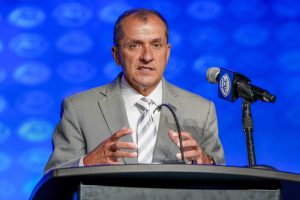
Photo courtesy: Jim Dedmon-USA TODAY Sports


